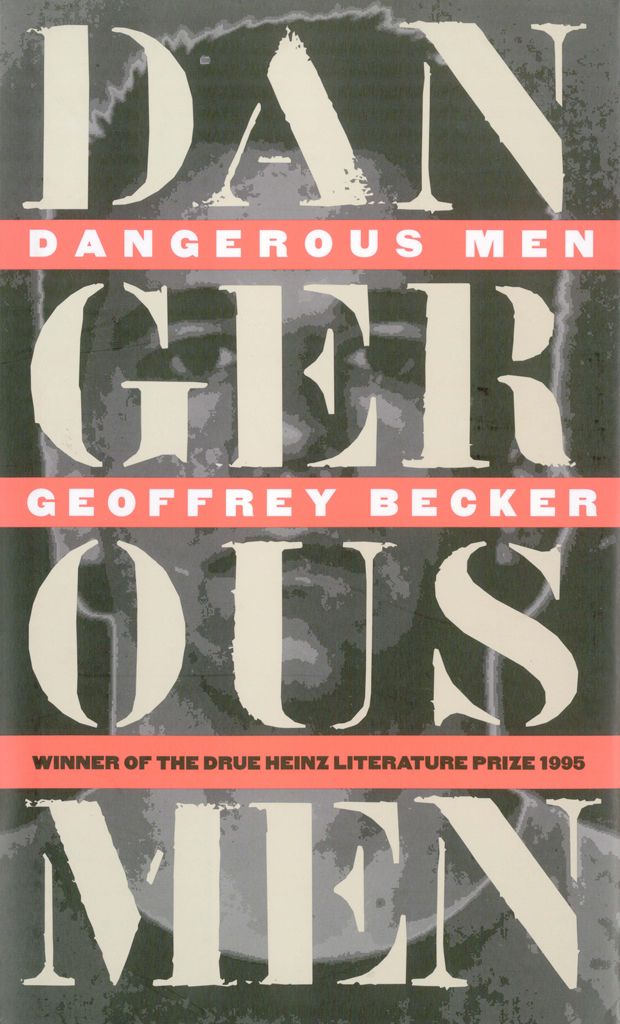
Dangerous Men
Pitt Drue Heinz Lit Prize
کتاب های مرتبط
- اطلاعات
- نقد و بررسی
- دیدگاه کاربران
نقد و بررسی

Starred review from October 9, 1995
Most of the male characters who appear in the 11 stories in this collection--which won the 1995 Drue Heinz Literature Prize--are as dangerous to themselves as they are to others. In the title story, Becker achieves the perfect blend of humor and menace as three tripping teenagers stumble though Boston on the night of Nixon's resignation, undecided about whether to go ``fag''-bashing or do their music homework. Violence--or the threat of it--figures heavily in these stories. In ``Magister Ludi,'' Duney, a straight-laced high-school senior, goes to a quarry for a swim with Riggy, an older musician whom she barely knows; when his pursuit of her threatens to turn forceful, she gets scared until she realizes she can swim circles around him (``she thinks she has never felt more in control in her life''). In ``Taxes,'' Pretzel, a black teenager who runs errands for an elderly Jewish man, must decide whom to defend when his brother tries to rob his employer. On the goofier side, there's ``The Handstand Man,'' in which 30-something Jimi-John Houser tries to save a dying romance by turning the living room of his tiny New York City apartment into a beach. Becker's cast includes aging, struggling musicians, drifters and petty criminals. In smooth, careful prose, he delineates his ethnically diverse characters with lucid empathy and renders moments of their lives taut and compelling.

November 1, 1995
This collection of 11 short stories, nine previously published in literary magazines, won the 1995 Drue Heinz Literature Prize. Thematically, these stories cover sibling rivalry, lovers' quarrels, father-and-son relationships, a basketball game with the devil in disguise, sexual initiation, people and animals, and black-white interaction. Becker focuses on characters at the margins of society (restless students, musicians, ghetto kids, a woman auto mechanic, actresses, and a dwarf) and quickly brings them to life. These misfits drink a lot but also think deeply. Becker, who has an M.F.A. from the University of Iowa Writers' Workshop and currently teaches creative writing at Emory University, often experiments by using a female perspective or black English. While the result is an engaging style full of specific details, good dialog, good metaphors and similes, and plenty of humor, the endings often fail to resolve the stories' conflicts. For larger fiction collections.--Janet Ruth Heller, Grand Valley State Univ., Allendale, Mich.

December 15, 1995
Becker is the 1995 winner of the Drue Heinz Literature Prize, and as expected, is a savvy writer, but he is also very shrewd and unerring as he homes in on the nature of aspirations. His sensitivity to our yearnings, especially when we are young, is strongly manifested in his dramatic renderings of desires for freedom or innocence: Jimi-John in "The Handstand Man" holding on to the essence of travel by creating a tropical island, sand included, in his apartment; Tony in "Big Grey" hunting a vicious stray dog in a park but then frantically trying to save the animal when the hunt turns ugly; Christine the mechanic in "Daddy D and Short Time" understandably disenchanted with her lover and then, after meeting a strong, wise black man and his charge, a fragile, small Italian with little time to live, accepting her lover and the inevitable "maturing" of her body. Each story holds its own, and the best in this excellent collection is not necessarily any of the ones mentioned here. ((Reviewed December 15, 1995))(Reprinted with permission of Booklist, copyright 1995, American Library Association.)

























دیدگاه کاربران